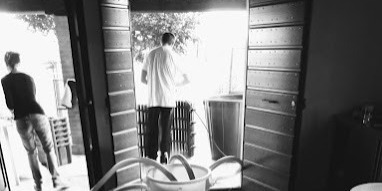Certified
Organic
Type
Grower, Maker

Certified
Organic
Type
Grower, Maker
After an apprenticeship in the winery of our dear friend and lot of study, in 2018 we decided to start our wine-making journey. We put aside our previous lives as archaeologist and art historian and bought a farmhouse in the hills with an annex that we transformed into a winery with the help of our friend. Our aspiration was to live a rural life and a viticulture without too many compromises, in attempt to recover and enhance the ancient wine-growing tradition of Gubbio. So we rented fifteen very small vineyards between 60 and 120 years old which all together do not reach 4 hectares. These vineyards, that would have been explanted, are true wine monuments and form the basis for selecting a very interesting genetic material to be used in the vineyards that we will plant in the next few years. The vines exude history and speak of our landscape, so we intend to keep them talking for a few more decades and, at the right time, the new vineyards derived form them will continue. In our minds viticulture is manual, a daily practice made of sensitivity and continuous observation. Without any prejudice or radicalism, we try to use only natural techniques in the vineyards, from biodynamics to Masanobu Fukuoka’s agricultural method, that allow us to intervene as little as possible. The aim is to obtain a fruit of highest quality. Then the work continues in the winery by subtraction, with the intention of interfering as little as possible year after year. The following practices are carried out for all our wines: To improve biodiversity in the vineyard we grass and manually sow plant essences. As treatments we use only very low doses of copper, sulphur and propolis. The grapes are hand-picked from 80-year-old vines and trained on the guyot method at 500 metres above sea level, on two types of soil: marly-arenaceous and calcareous. The yield varies from 700 gr to 1.5 kg of grapes per vine. In the cellar, the bunches of grapes are carefully selected and destemmed by hand on a trellis. Fermentation takes place spontaneously on its own indigenous yeasts, without temperature control and avoiding the use of oenological aids (with the exception of minimal doses of So2). Racking is always light, carried out with a vertical hydraulic press to avoid lacerating the skins. No further pouring takes place after post-fermentation racking. The wines do not undergo any stabilisation processes, nor filtrations or cleaings, and (they) are bottled and labelled by hand. In the vineyard and cellar, processes respect the lunar cycles as much as possible.
- Size of their farm: 22 (ha)
- Size of farm under vine: 4 (ha)
- All grapes are dry-farmed. None of the vineyards are irrigated.
- All grapes are harvested manually.


